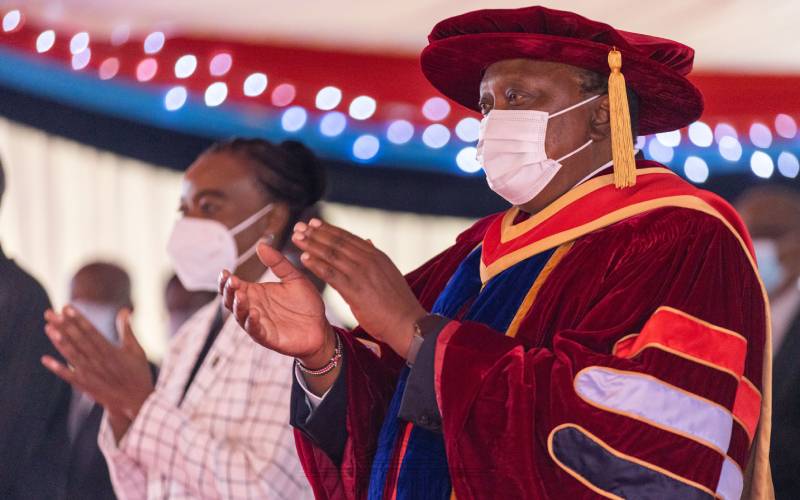×
The Standard e-Paper
Stay Informed, Even Offline

The National Defence University of Kenya (NDU-K), which was granted a charter last month by President Uhuru Kenyatta, will be jointly managed by the ministries of Defence and Education.
According to the charter, the Chief of Defence Forces shall be the chairperson of the university council.